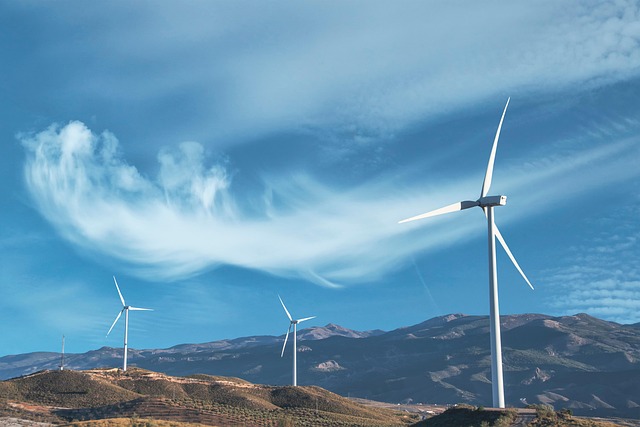On 17 August 2022, the first law of the new legislature, i.e., of Emmanuel Macron’s second term in office, “LOI n°2022-1158 du 16 août 2022 portant mesures d’urgence pour la protection du pouvoir d’achat” (Law n°2022-1158 of 16 August 2022 on emergency measures to protect purchasing power) was published in the French Official Journal.
While the debates and controversies have often focused on the measures relating to the protection of the standard of living of the French (Title I of this law: “Protection of the standard of living of the French”) and the protection of consumers (Title II of this law: “Protection of the consumer”), a very important part of this this text (22 articles out of 48 in total) is dedicated to issue of “Energy Sovereignty” (Title III of this law) with provisions relating to the security of gas and electricity supply while adding new provisions relating to the regulated access to the historical nuclear electricity (ARENH).
Over the last few months, we have seen and often commented in this newsletter how governments are trying to limit the impact of rising energy prices on consumers, either through budgetary support (subsidies, tax reductions – see our article “Rising energy prices: national measures to protect European end-users”) or by intervening in the functioning of the market (see our articles “TIMES THEY ARE A-CHANGIN’ – Iberian Exception” and “Suspension of the Australian electricity spot market: a warning for Europe?”). With this law, the French legislator (and the government) gives the French administration new means to intervene in the supply/demand balance and thus in the energy markets.
The next major Energy and Climate Law: a law on the French energy and climate strategy is due in mid-2023. This law, in addition to framing the new multi-annual energy programming (PPE), will have to include the new definition of the organisation of the electricity markets (a new NOME) by defining a post-ARENH mechanism. While we wait for it, the organisation of the electricity market is gradually being transformed with the passing of some laws, such as through the last Finance Law and now with this law on purchasing power. It is still likely that the next Finance Law will contain a rich energy-climate component.
The most potentially radical measure in this new law of 16 August is the one defined in article 26. Even though this article appears under the chapter on provisions relating to the security of gas supply, it is the functioning of the electricity market that is primarily impacted:
The Minister may “order operators of electricity production facilities using natural gas to restrict or suspend the activity of their facilities” and may “requisition the services linked to the operation of some of these facilities so that they operate solely in accordance with the instructions and under the control of the operator designated by the Minister”.
Obviously, these provisions would only be effective in the event of “a serious threat to the security of gas supply” or “a threat to the security of electricity supply”. However, market prices levels seem to indicate that we are indeed experiencing such situations: the French/German spread of future electricity prices seems to include a certain number of hours where the price ceiling on the spot market would be reached (theoretically leading to an increase in this ceiling, even if the CRE – the French Energy Regulatory Commission – rightly argues against the automatic increase of this ceiling price).
In the version voted by Parliament, this measure was to be limited in time to 5 years from the date of publication of this law. In the version published after approval by the Senate and the Joint Committee, the duration has been reduced to 4 years and its application modalities will have to be defined by Decree in the Council of State (which will delay the potential implementation of this measure).
The operators will be compensated, of course, but “no compensation is due for the loss of the profit that the operator could have obtained from the free exploitation of his installation”. Thus, we understand that these compensations should also cover the cost of buying in the market a forward sale that cannot be honoured by the operation of the plant. But will the forthcoming decree set some limits to these costs and thus define any hedging rules for gas-fired plants?
Given that the price of electricity in France is mainly set by gas-fired power plants (which is the subject of the strongest criticism from the government: an “absurdity” according to Bruno Lemaire, a statement taken up by Emmanuel Macron), this measure may be the beginnings of a radical reform of the electricity market that would seem to be inspired by the “PPAs” that bound EDF to producers (such as the Société Nationale d’Electricité et de Thermique – SNET) in the past.
The measures which provide operating exemptions for coal-fired power plants (Article 36), those giving the Minister the possibility to intervene in the operation of load shedding mechanisms (Article 33) or those giving the transmission operator the possibility to make available to back-up facilities “electricity production or storage of more than one megawatt with a view to providing them with a back-up power supply” (Article 34), go in the same direction: to establish new means of intervening in the supply/demand balance, and therefore in the energy markets.
We cannot fail to mention the provisions relating to the ARENH, even if they are disappointing in terms of consumers’ expectations.
Two articles (39 and 40) seem to be more aimed at enhancing the value of the EDF shares the government intends to buy back (a concern for the purchasing power of small stakeholders of EDF shares?): the ceiling of the ARENH volume is reduced to 120TWh (compared to 150TWh without this ceiling having ever been implemented). Moreover, the price for 2023 of the ARENH cannot be lower than 49,5€/MWh (if agreed by the European Commission and from the date of this agreement). For other consumers, these articles could be of interest for planning purposes if it means that the 2023 cap was indeed to be raised to 120TWh (a hypothesis that seems quite likely but would not be part of this law) and if the price was indeed set at 49.5€ (which requires, in fact, a decree and an authorization from Brussels).
Furthermore, the government has added an article allowing the mechanism of the additional 20TWh for 2022 to be protected, in particular, against appeals from EDF.
Since the law of February 2000 was approved, energy and climate laws have followed one another at a steady pace; generally, every two years, which has led to the creation of a well elaborated “Energy Code”. With the current energy price crisis, the pace is accelerating. In addition to the Law of 22 August 2021 on combating climate change and strengthening resilience to its effects and pending the SFEC (French Energy and Climate Strategy) law in June 2023, the Energy Code has been strongly impacted by the Finance Law of 2022 and by this law to protect purchasing power.
We can only wait and see what the next Finance Law of December 2022 will bring, and which will encourage the debates this coming autumn.
Philippe Boulanger






